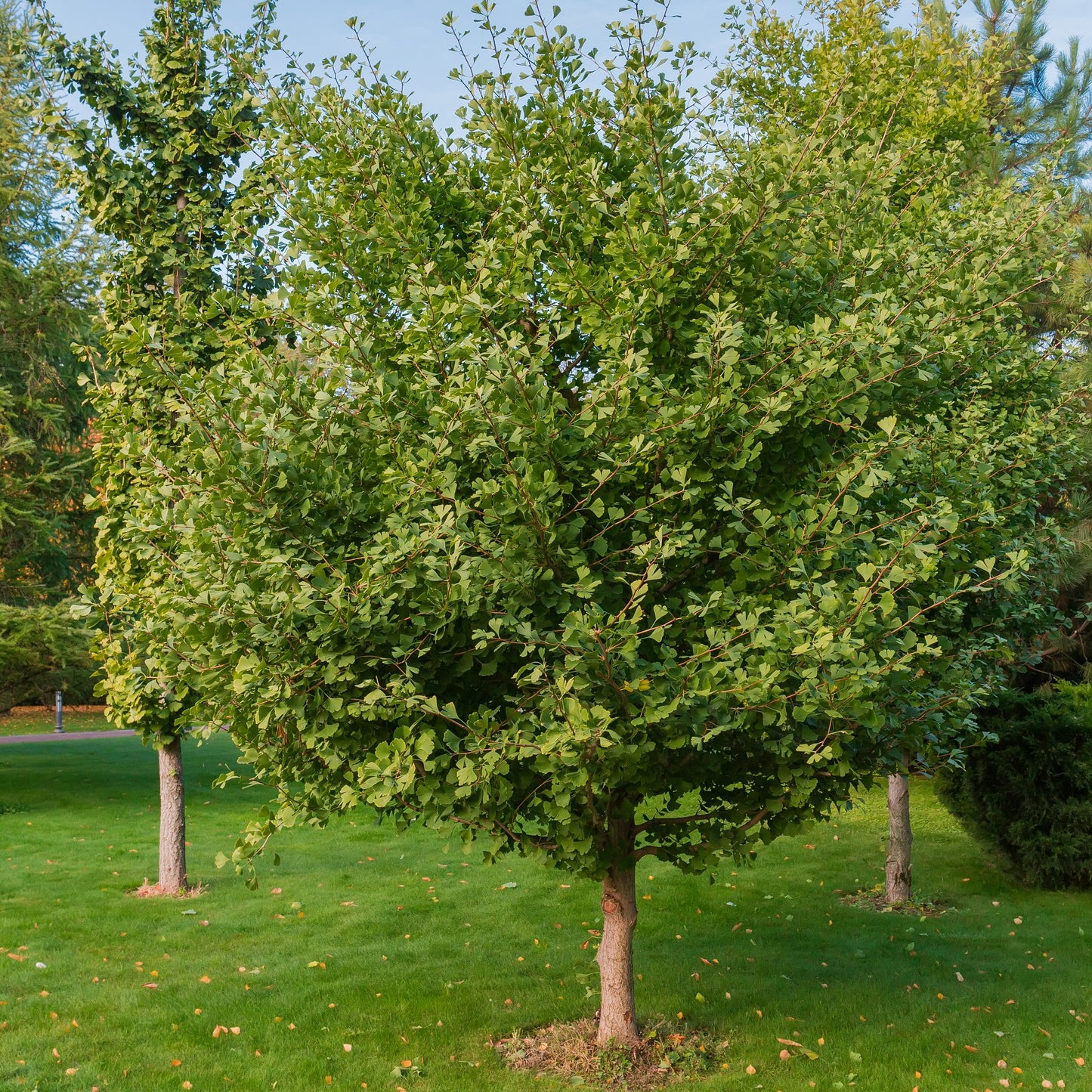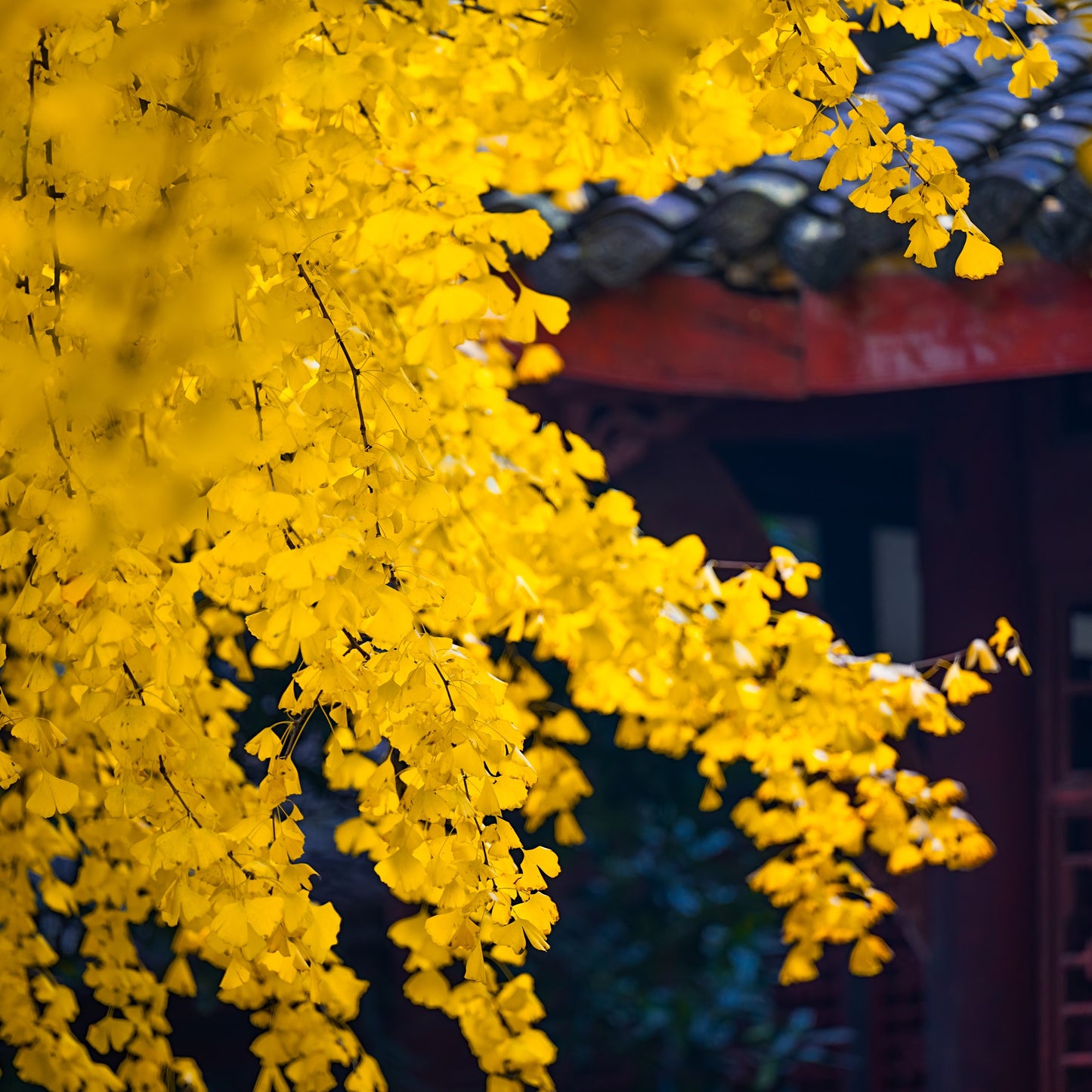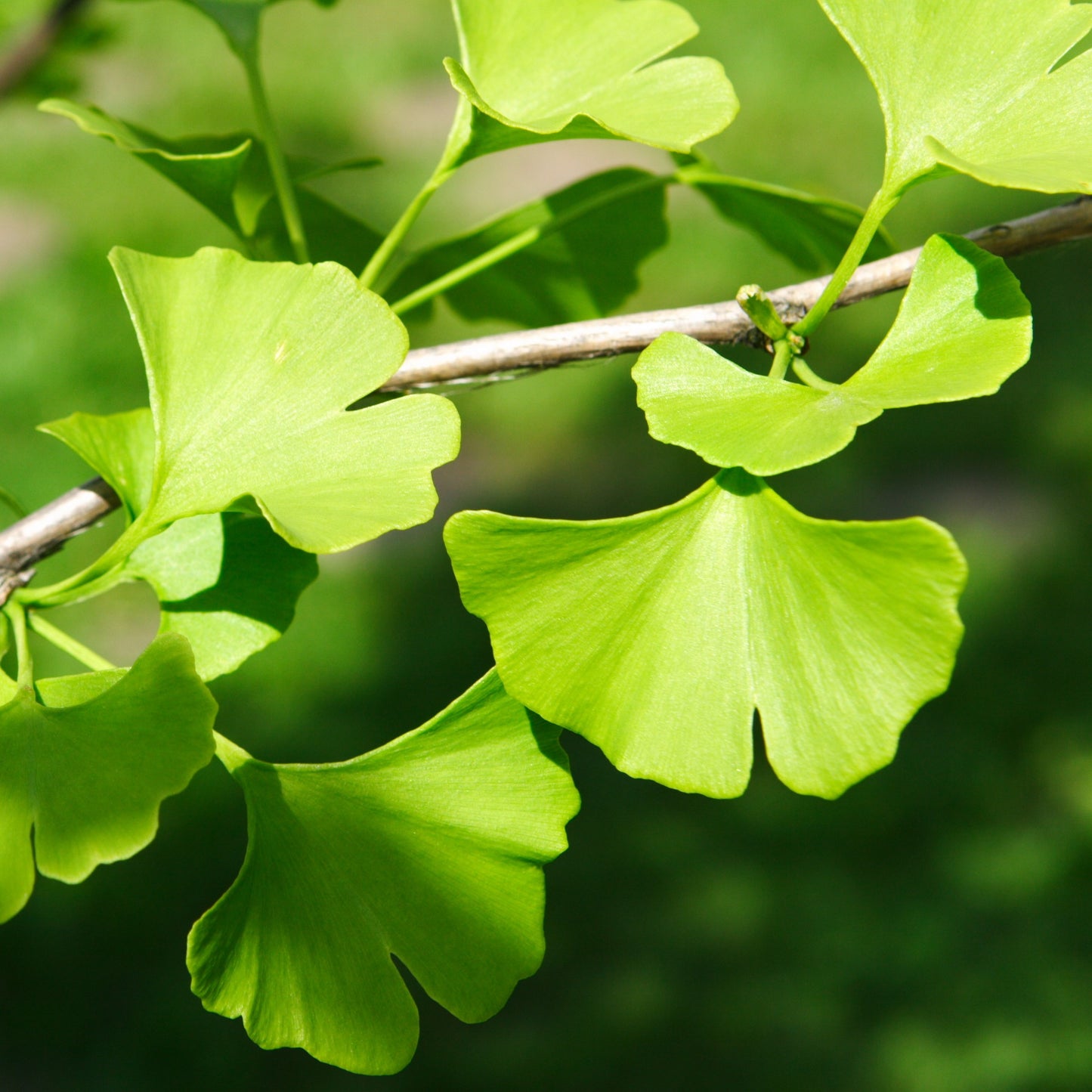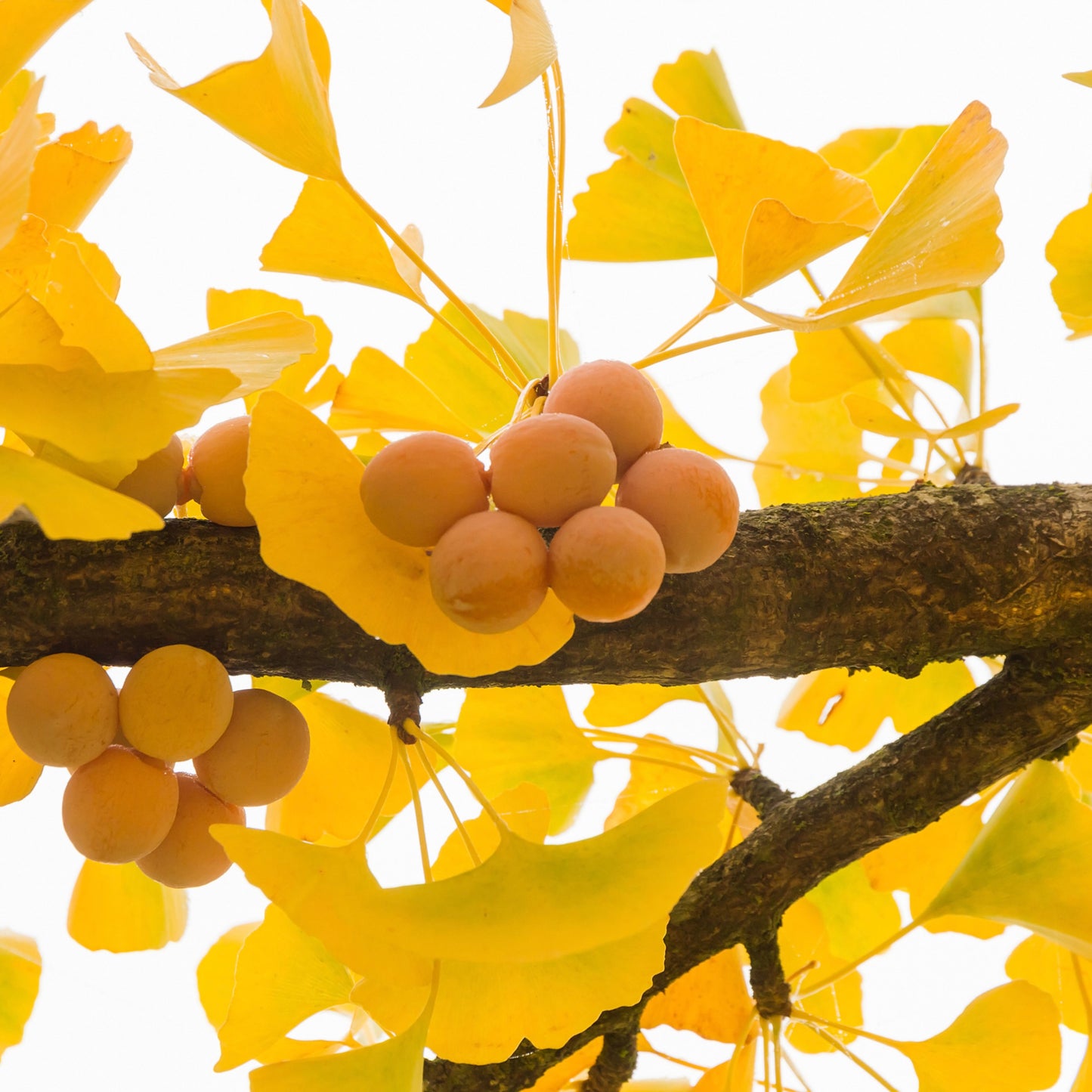Limited Quantities - Reserve Now For Fall
Ginkgo Biloba Tree
Ginkgo Biloba Tree
Couldn't load pickup availability
Ginkgo biloba
The Ginkgo Biloba Tree, also known as the Maidenhair Tree, is a living fossil dating back over 200 million years. This deciduous tree is renowned for its fan-shaped leaves, stunning golden fall color, and exceptional resilience to urban pollution, pests, and diseases. With its slow to moderate growth, long lifespan, and adaptability, the Ginkgo is a perfect choice for street planting, shade, and ornamental landscapes.
Ginkgo Biloba Tree
| Attribute | Details |
|---|---|
| Variety | Rooted |
| Botanical Name | Ginkgo biloba |
| Common Names | Ginkgo Tree, Maidenhair Tree |
| Mature Height | 40-80 feet |
| Mature Width | 30-40 feet |
| Growth Rate | Slow to Moderate (1-2 feet per year) |
| Lifespan | 100-1,000+ years |
| USDA Hardiness Zones | 3-9 |
| Sun Preference | Full sun (6+ hours of direct sunlight) |
| Soil Type | Well-drained, loamy, sandy, or clay soils |
| Soil pH | Slightly acidic to neutral (5.0-7.5) |
| Water Needs | Low to moderate; drought-tolerant once established |
| Fall Foliage | Brilliant golden yellow |
| Wildlife Attraction | Minimal, not a primary wildlife tree |
| Growth Habit | Upright, pyramidal when young, spreading with age |
| Self-Pollinating? | No, separate male and female trees |
| Landscape Uses | Street tree, shade tree, ornamental planting, urban landscaping |
| Maintenance Level | Low |
Environmental Benefits
🌱 Air Purification & Pollution Tolerance – Absorbs pollutants, filters dust, and improves air quality, making it ideal for cities and urban areas.
🌳 Drought & Disease Resistance – Highly resistant to pests, diseases, and harsh conditions, making it one of the most durable trees available.
🍂 Seasonal Beauty – Provides vibrant golden-yellow fall foliage, adding stunning autumn color to landscapes.
🌎 Carbon Sequestration & Soil Adaptability – Thrives in various soil conditions, helping reduce carbon footprints and stabilize landscapes.
Pros & Cons
| Pros | Cons |
|---|---|
| Extremely long-lived and resilient | Female trees produce fruits with a strong odor (male trees recommended for landscaping) |
| Brilliant golden-yellow fall color | Slow initial growth before developing a full canopy |
| Tolerates urban pollution, drought, and poor soils | Requires full sun for best growth and foliage |
| Low maintenance and disease-resistant | Can take many years to reach mature height |
| Strong, unique fan-shaped leaves add visual interest | Not a major wildlife-attracting tree |
Planting & Care Guide
- Spacing: Plant 30-40 feet apart for full canopy development
- Soaking: Soak bare root in water for 6-12 hours before planting
- Planting Depth: Dig a hole twice the width of the root system, ensuring roots are level with the soil surface
- Mulching: Apply a 2-3 inch layer of mulch to retain moisture and suppress weeds
- Pruning: Minimal pruning required; remove dead branches in late winter or early spring
- Fertilization: Use a slow-release fertilizer in early spring to encourage healthy growth
- Watering: Water regularly during the first year, then reduce as the tree matures
The Ginkgo Biloba Tree is a legendary, long-lived tree that offers beauty, durability, and environmental benefits with minimal care. Whether planted for shade, ornamental appeal, or pollution resistance, this iconic tree is a timeless addition to any landscape.
Share








